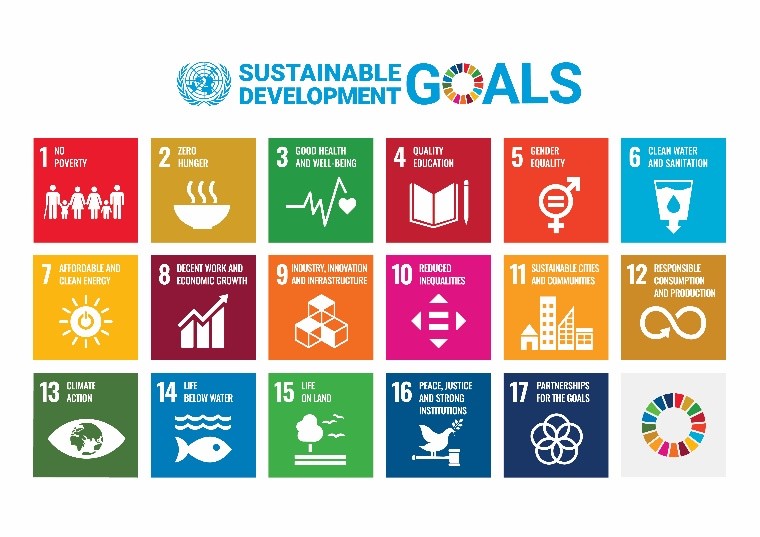By Professor Lyndon Simkin, Executive Director of the Centre for Business in Society
The recent COP26 UN climate change conference in Glasgow has brought the issue of responsible business centre stage, as the event dominated the news headlines and world leaders flew to Scotland to derive solutions and barter agreements.
While many companies undoubtedly have been tardy in their handling of sustainability, with some failing to alter their practices and behaviours in any way whatsoever, it is important to recognise that many others have been for some time striving to innovate, alter their practices and adopt new ways of working. The annual Britain’s Most Admired Company awards reveal the extent to which some of the better run businesses fully embrace a responsible business agenda.
Nevertheless, the aspirations voiced at COP26 will not be realised without the right support.
Some Businesses Are Bringing About Change
Dutch International franchise operator SPAR, for example, has mapped its activities against the 17 UN Sustainable Development Goals (SDGs), identifying 14 of the 17 against which it has modified its practices in order to ‘make a difference’ and contribute to the improvement agenda called for in Glasgow. SPAR International has developed strategies to address food waste, sustainable packaging, recycling, as well as modifying many of its operations and working practices to bring about CO2 and energy reduction. With Too Good to Go, the grocery retailer has saved over a million meals from being discarded, it is baking bread in Slovenia from repurposed flour, and in October it launched a plant-based food range, amongst many initiatives intended to address the UN’s SDGs.

In the UK, a business such as Tesco has instigated many changes, from initiatives to encourage consumers to re-use packaging by returning it to stores, instructions to suppliers to change packaging materials away from single-use or from materials requiring a lot of energy to produce, altering in-store lighting and refrigeration to conserve energy and reduce emissions, changing its fleet to less harmful vehicles and deriving new distribution routes and schedules to minimise the carbon footprint in its supply chain, and working with suppliers around the world to effect change, amongst many other initiatives. We tend to hear the extent to which practices in industry are poor and where improvements are needed, rather than recognise that there are already leadership teams striving to do things differently and better.
Many organisations already do so much, but they have not previously brought it all together in a coherent strategy or shared their experience with others to bring about further change. Fujitsu, a Japanese multinational information and communications technology equipment and services corporation, has products and applications designed to make a difference in sustainable manufacturing, healthy living, improved customer behaviour and other areas. In October, the company launched Fujitsu Uvance, a whole new brand strategy intended to showcase how it might assist its business clients in, “Moving forward for a sustainable world… Building new possibilities by connecting people, technology and ideas, creating a more sustainable world where anyone can advance their dreams”. Fujitsu as a manufacturer of technology products itself adopts these practices, but as a leading provider to other business of IT services and consultancy, it offers others these benefits. Fujitsu is not alone.
While much more undoubtedly needs to be done, as has been demonstrated by the shocking statistics emerging from COP26, there are companies already striving to make a difference. But many more need to follow their lead.
In the strategic reviews that I am involved with, many corporate leadership teams are indeed grappling with aligning to the UN SDGs. As they seek to demonstrate to their shareholders, regulators, suppliers and customers that they are improving. Interestingly, in many businesses, the agenda for change in these businesses commonly is focused on a set of drivers evident within many of the UN SDGs:
Emissions Waste Energy Ethics Compliance
While there is much more to the UN 17 SDGs and to the topics covered at COP26, progress against these drivers would certainly have significant impact. However, getting there is far from straight forward.
Help Needed
There is a steep learning curve facing many companies. The COO of one large global manufacturer of branded beauty, food and beverage products recently stated:
“This all translates as requiring data (tech/sensors), tracking (systems), analytics (insight/audits) and AI (automation), in order to derive workable solutions to reduce emissions, waste and energy… But boy, do we need help in all of this!”
The business event in which this view emerged went on to conclude that in order to derive cost-effective, workable and meaningful solutions requires the 5 Ss of Sustainability:
Sharing (data/insights)
Security (data/networks)
Systems (hardware/software/peopleware)
Streamlining (simplification/cost effective/lean)
Strategy (goals/process/sustainable solutions)
And partners, collaborators, suppliers, experts and regulatory bodies who are able to provide these processes, techniques, technologies and services. As well as business ecosystems willing to fully embrace new practices and ways of working. The 5 Ss and the extent of the collaborations required reveal some of the complexity in actually bringing about the changes desired and in operationalising the plans now emerging in so many companies.
A whole new market is opening up to those who are able to help businesses to realise their fast-evolving environmental and sustainability goals. Without which, the aspirations voiced at COP26 will not be realised, with companies struggling to enable and deliver change.




Comments are disabled